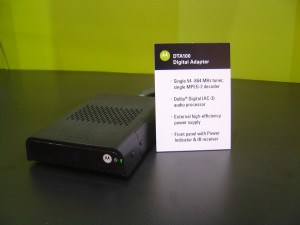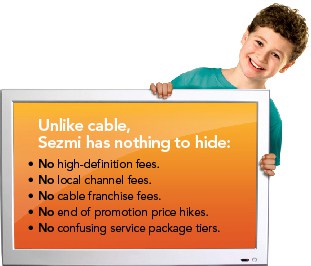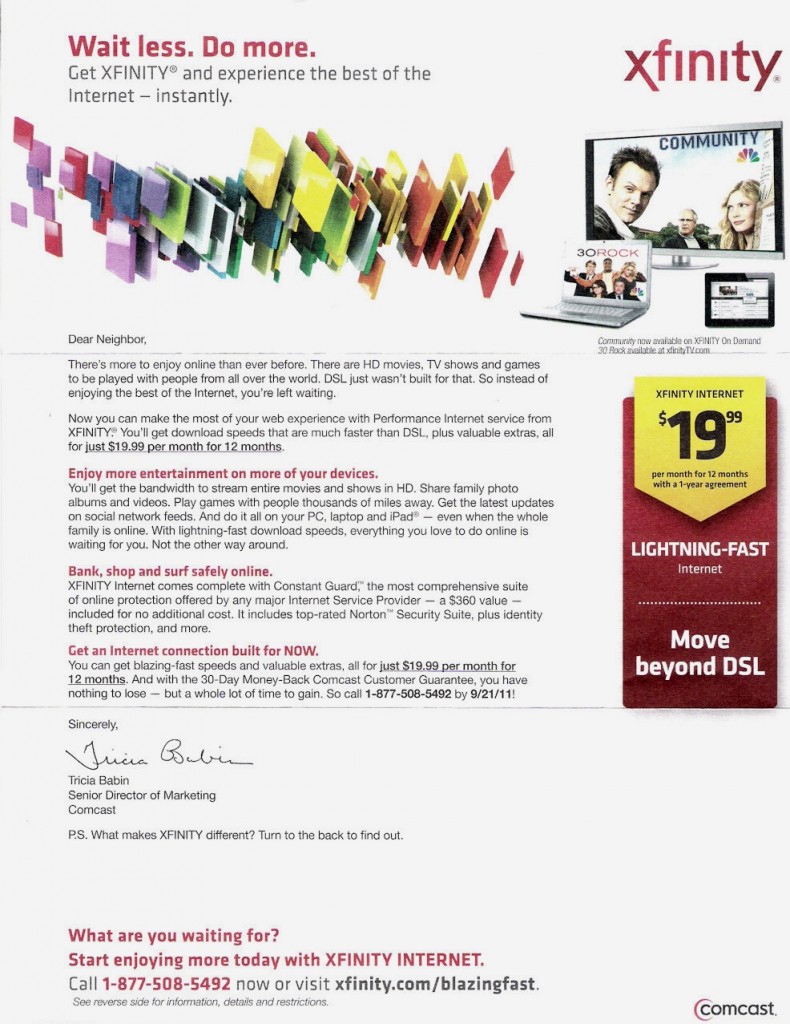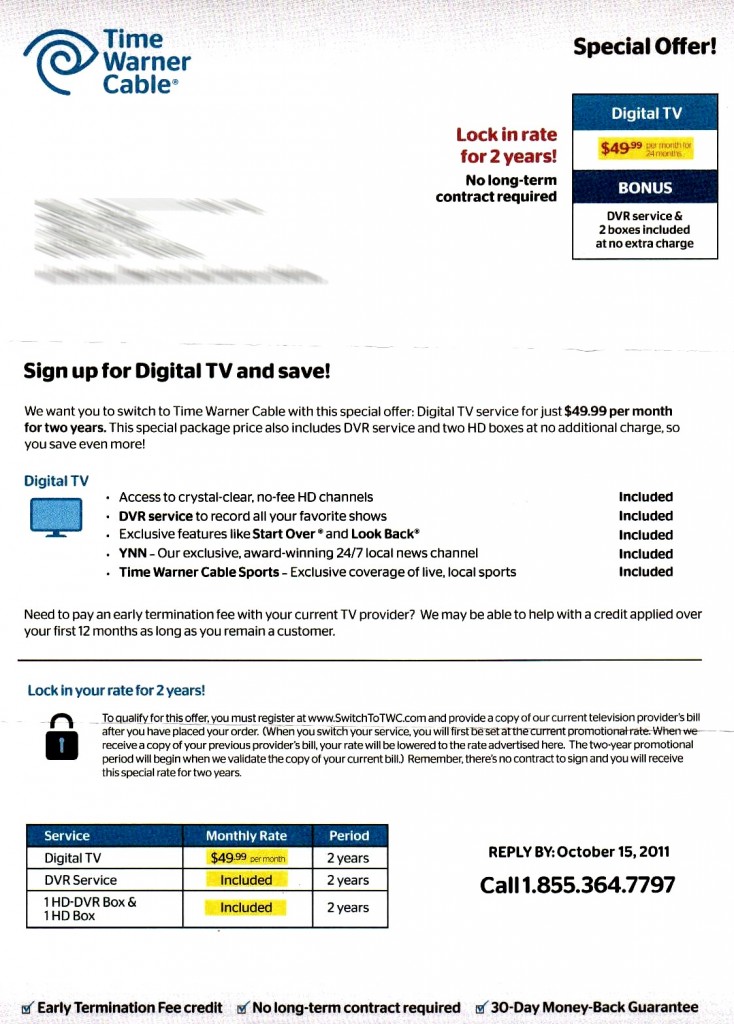 Stop the Cap! reader Wayne A. dropped us a line to let us know Comcast has been getting very aggressive in the Denver area, poaching CenturyLink customers with enormous discounts:
Stop the Cap! reader Wayne A. dropped us a line to let us know Comcast has been getting very aggressive in the Denver area, poaching CenturyLink customers with enormous discounts:
My wife and I just accepted a package from Comcast to leave CenturyLink for a package that includes:
- Digital Premier HD with DVR
- HBO, Cinemax, Showtime, and other premium movie channels
- Broadband service at 25/5Mbps
- Unlimited Long Distance Digital Phone Service
Comcast’s price? An amazing $109.99/month for the first year, $129.99/month for the second. Wayne says that’s a savings of $90 a month over ordinary Comcast prices, and compared with what he was paying CenturyLink, he will save $912.12 during the first year and around $600 for the second.
What makes Comcast’s pricing so aggressive is the fact they include much faster broadband speed than many other retention or “capture” customer deals. They also throw in free premium movie channels. We’ve seen Time Warner Cable offer triple-play retention deals for less than $90 a month for the first year, but they don’t include movie channels and deliver broadband service at the standard 10/1Mbps speed.
 If you are paying Comcast more, it may be time to pick up the phone and threaten to walk unless you can have the same deal. We’ve found dealing with customer retentions to be a real “your results may vary”-experience. Don’t be willing to take the first offer. Don’t be afraid to dismiss weak deals with a non-committal “I’ll think about it” if the price is not right for you. Then call back.
If you are paying Comcast more, it may be time to pick up the phone and threaten to walk unless you can have the same deal. We’ve found dealing with customer retentions to be a real “your results may vary”-experience. Don’t be willing to take the first offer. Don’t be afraid to dismiss weak deals with a non-committal “I’ll think about it” if the price is not right for you. Then call back.
In the last few weeks, we’ve found Time Warner Cable’s best deals still go to customers who actually schedule a service disconnection. Within hours, Time Warner starts calling, looking to “make an offer you cannot refuse.” The retention specialists at Time Warner who reach out to you generally have the most aggressively priced deals. You qualify if you call, schedule a disconnect a  week or two out, and wait by the phone. You can keep your service running while company representatives try to convince you to stick with them. Just make sure you answer those unfamiliar Caller ID-calls — it’s probably the cable company. Most will ask why you disconnected. If you answer “price,” the deals start coming.
week or two out, and wait by the phone. You can keep your service running while company representatives try to convince you to stick with them. Just make sure you answer those unfamiliar Caller ID-calls — it’s probably the cable company. Most will ask why you disconnected. If you answer “price,” the deals start coming.
Unfortunately, there was no way we could take advantage of any of their latest offers, which literally started two hours after disconnecting my late grandmother’s cable service.
It’s a buyer’s market for telecommunications products, so never settle for the regular price when a substantial discount is a phone call away.


 Subscribe
Subscribe







